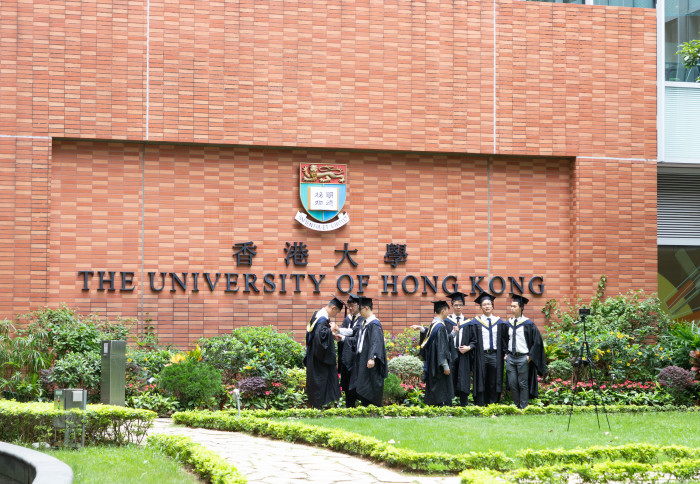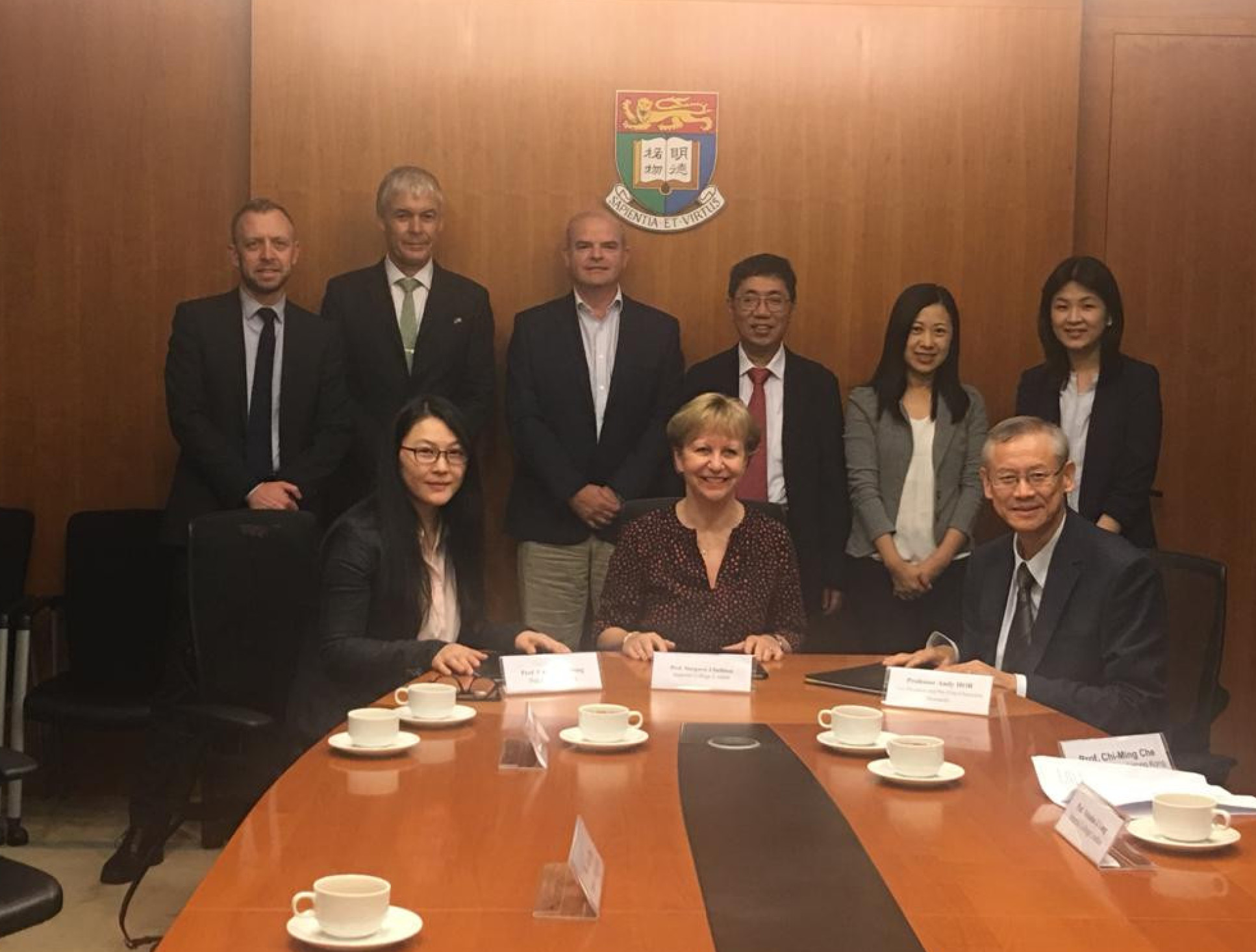Imperial, HKU and Peking University announce chemistry research collaboration

Three leading institutions in London, Hong Kong and Beijing will drive research and innovation in synthetic chemistry and chemical biology.
The collaboration involves four principal investigators from Imperial’s Department of Chemistry – led by Professor Nick Long. Research projects will focus on drug discovery and synthesis as well as diagnostics and the emerging field of ‘theranostics’.
Professor Long said: “This entire area has enormous potential in the design and discovery of novel compounds that will ultimately bring a tangible benefit for patients with a range of conditions. But it is also an area that requires considerable resources – both in terms of infrastructure and talented researchers. So it makes sense to pool our efforts and work collaboratively with leading international institutions, in order to bring these discoveries to the clinic as soon as possible.”
The foundations for collaboration
Imperial has long-standing links with Hong Kong and in particular with HKU – participating in several research collaborations in public health and bioengineering, as well as a PhD exchange programme that sees students co-supervised by Imperial and HKU academics.
International collaboration is at the core of Imperial’s mission and is vital in addressing some of the challenges we face as a global society. Professor Maggie Dallman Vice President (International)
The Hong Kong Special Administrative Region Government recently launched Health@InnoHK, a major initiative to drive global research collaboration in healthcare technologies. Imperial will take part in a newly formed 'tripartite research collaboration' with HKU and Peking University in Beijing under Health@InnoHK.
Imperial brings to the alliance world-leading expertise in synthetic chemistry and chemical biology and its translation into application – for example through the Institute of Chemical Biology (formed in 2005) and more recently through the Centre for Rapid Online Analysis of Reactions (ROAR) and Institute for Digital Molecular Design and Fabrication.
Charting new chemical horizons
The new initiative, which lasts for five years in its first phase, builds upon the close links that have been created between the chemistry departments in both HKU and Imperial in recent years.
The research programmes comprise Synthetic Chemistry; Chemical Biology; Diagnostics and Theranostics; and Multi-Omics Technologies (i.e. genomics, metabolomics, proteomics).
Theranostics is a particularly exciting new field combining diagnostics and therapy, recognising the importance of timely diagnosis and treatment – particularly for cancers. This involves the development of chemical probes that have bi-functional purposes, enabling direct imaging of cells and disease area in addition to carrying a therapeutic component as part of the molecular payload.
The principal investigators from Imperial are Professors Nick Long, Matt Fuchter, Ed Tate and Ramon Vilar – all from the Department of Chemistry.

An Imperial delegation including Professor Long and Imperial’s Vice-President Professor Maggie Dallman (International) travelled to Hong Kong in 2019 to meet scientists and academic leaders from HKU and discuss setting up the collaboration.
Professor Maggie Dallman said: “International collaboration is at the core of Imperial’s mission and is vital in addressing some of the challenges we face as a global society. We welcome this latest initiative, alongside two of Asia’s leading research institutions, and look forward to seeing the impact it has in terms of new discoveries in the chemical space and healthcare innovations.”
Article text (excluding photos or graphics) © Imperial College London.
Photos and graphics subject to third party copyright used with permission or © Imperial College London.
Reporter
Andrew Czyzewski
Communications Division